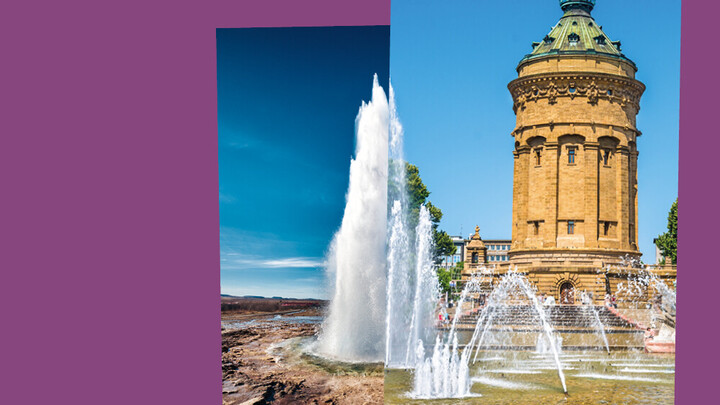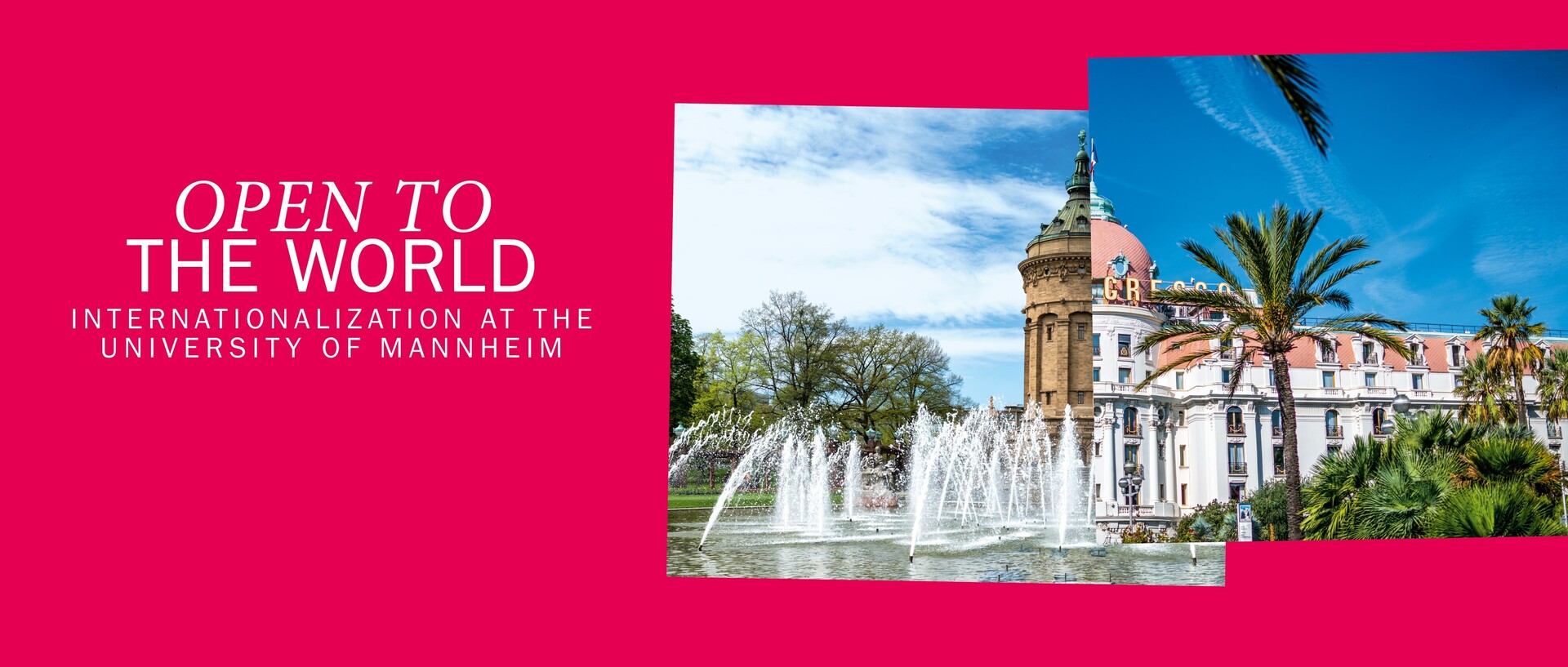Abroad: From Mannheim out into the World and Vice Versa
Every year, more than 2,800 researchers and students embark on an adventure abroad. The University of Mannheim’s International Office (IO) is there to provide any assistance they need. Whether they are leaving from Mannheim or coming here, whether they are a visiting professor, degree-seeking student, or “outgoing” student, the IO’s five teams are the mainstay for every form of international exchange and have answers to almost every question.

In June, a meeting is held on Zoom with 270 participants. Even through the screen, you can feel an excited buzz in the air, and the wanderlust is almost tangible. Lukas Dausend, a member of the IO’s Study Abroad team, is responsible for advising on study abroad. He is hosting a traditional “checkout,” in which he bids farewell to the Mannheim students who are heading off for their semester abroad. Final questions are answered over Zoom, and later in the Mensa there is an opportunity for students going to the same destination country to meet up. Dausend uses the app Mentimeter to ask the participants what they expect from their time abroad; the answers appear live in a word cloud on the screen. The bigger the word, the more students gave that answer. After two seconds, the word with by far the most responses is “partying.” Dausend smiles, but now other words and phrases are also appearing: “Meeting new people,” “travel,” “foreign language skills,” and “culture” are some of those the study advisor reads aloud. In the academic year 2021/
During peak hours, the hallways of the International Office are bustling with activity, and there are sometimes even lines in front of the offices. Those who are waiting converse in English, and on the wall there is a poster with the word “welcome” in all imaginable languages—after all, sending out Mannheim’s own students is only one of the tasks for which the IO is responsible. Birgit Heilig, who has headed the IO since 2007, describes how it is structured into five teams: Study Abroad, International Exchange Students, International Degree-Seeking Students, Welcome Center, and Translation Services. There are 27 employees working on international exchange in the IO alone, and the schools also have their own departmental exchange coordinators. That was not always the case, Heilig recalls with a smile: “When I applied for the position in 2007, I asked myself whether I really thought I was ready to manage five staff members!” Fifteen years have passed since then, and quite a bit has happened on the internationalization front at the University of Mannheim and across the German university landscape as a whole, she says: “I still have the same position, but I wouldn’t say that I’m doing the same job as I did then. Internationalization has become a far more important topic, Germany’s funding structures have been expanded accordingly, and that made it possible for the university to acquire a lot of external funding.” Thanks to these external funds, it was possible to finance stays by visiting professors for teaching, for example, and to institute the departmental exchange coordinators in the schools. These coordinators actively work on acquiring new partnership agreements with universities all over the world. The University of Mannheim has 769 of these partnership agreements in the academic year 2021/
The goal is for researchers to feel welcome when they come to Mannheim from all over the world to research and teach here. Solrun Graham-Parker, coordinator of the Welcome Center team, works to make sure they do. With a smile, she opens the door of the university’s Guesthouse. In the cloakroom there are balance bikes, and a green inner courtyard invites guests to linger. “We have 32 apartments for the international researchers—and there’s everything from large family apartments to studios,” she says as she walks through the Guesthouse’s hallways. Each year, around 200 international researchers come to the university, and whether they live here in the Guesthouse or somewhere else in the city, they are all assisted and supported by Graham-Parker and her team. “The departments that invite the researchers, or the Graduate School of Economic and Social Sciences (GESS), tell us so that we know who will be coming to Mannheim in the next semester. As of that point, we are responsible for the entire length of their stay, and that can vary a lot. We have visiting professors who are only here for two or three weeks. But we also support research associates who come here for several years or even their entire career,” Graham-Parker says. Applying for residency permits, finding apartments in the Guesthouse, providing support with employment formalities—the Welcome Center must deal with a mountain of bureaucracy and is in constant contact with the relevant local government departments. Graham-Parker herself came to Germany from Iceland 20 years ago all on her own, and she is happy to be in a job where she can actively support people in the same situation. “Most researchers are grateful for the Welcome Center. Some stop by regularly, while others mainly ask for our help at the beginning of their stay. Others contact us when they have to fill out a new form for child benefits, for example,” Graham-Parker explains.
For the first time in two years, the “Welcome Reception,” at which new international students are welcomed to the university, is taking place in person. Every single spot in A3, a large lecture hall, is filled. Young people from around the world bustle around on this September afternoon, and excited voices fill the room. This is a special moment not only for them, but also for the IO team. “This is the moment that really brings home what we’ve accomplished in the last few months. Seeing all these young people who will have such influential experiences here with us in Mannheim, that is the greatest reward for our work,” says Heilig.
Text: Jule Leger / October 2022
